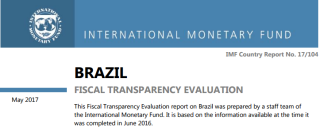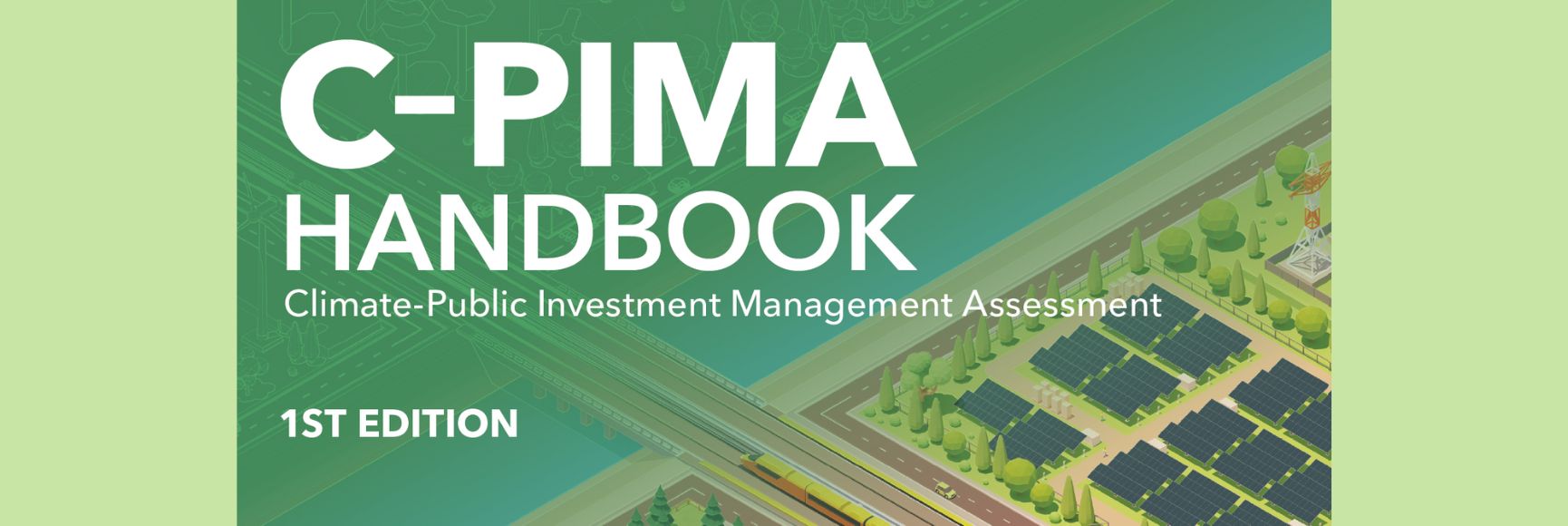Posted by Paulo Medas [1]
An increasing number of countries have done an assessment of their fiscal transparency practices against the principles in the IMF’s Code of Fiscal Transparency. Brazil did so in 2016, amidst ongoing efforts to upgrade transparency. The IMF just published the results.
According to the IMF, Brazil’s practices meet many of the principles of the Fiscal Transparency Code at good or advanced levels. Brazil has made significant progress over recent decades in providing regular information on the budget and its implementation at all levels of government. For example, fiscal statistics encompass the general government sector and recognize most of the government’s assets and liabilities. Fiscal reports are published frequently and annual financial statements are audited. The institutional scope of budget documentation is comprehensive and extensive budgetary information is made available to the general public. Since 2010 a Citizens Budget has been published which provides core information in a non-technical manner. Brazil is also a leading country in providing citizens with a formal voice in budget deliberations. Elected representatives of National Councils and committees and representatives of civil society can contribute to the planning and budget processes, including through participation in public hearings.
There are, nevertheless, several areas in which Brazil’s fiscal transparency practices could be further improved. Brazil provides a wealth of fiscal information; however, it does not systematically provide summary documents that describe developments across the entire public sector, including key risks that could impact public finances, and how they relate to policy priorities and objectives.
- Fiscal policy and fiscal risks could be better communicated to the broader public. For example, the role of Brazil’s public banks—which account for a large share of the financial sector—in implementing public policies (including quasi-fiscal activities) is not widely disseminated.
- Fiscal reports lack information on the largest nonfinancial public corporations, Petrobras and Eletrobras. These institutions have played a key role in implementing government policy and represent large fiscal risks.
- Budget documents could provide a clearer picture of the objectives of fiscal policy over the medium term, including for public debt. There is, likewise, limited information on medium-to long-term fiscal challenges, such as the implications of large and rising pension liabilities for debt sustainability.
- Fiscal risk disclosure and management are also an area of relative weakness. There have been, however important improvements recently in this area.
The IMF report includes a proposed working plan for strengthening transparency practices. The Brazilian government is already taking steps to improve its transparency standards. For example, the government has revamped the fiscal risks statement for the 2018 Budget Guidelines Law. In addition, the Federal Senate has created a fiscal council, the Instituição Fiscal Independente (Independent Fiscal Institution.)
[1] Paulo Medas is a Deputy Division Chief in the Fiscal Operation Division of the IMF's Fiscal Affairs Department
Note: The posts on the IMF PFM Blog should not be reported as representing the views of the IMF. The views expressed are those of the authors and do not necessarily represent those of the IMF or IMF policy.






